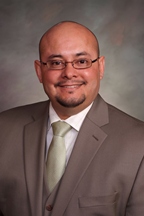By Jeffrey A. Roberts
CFOIC Executive Director
Recent excessive-force allegations involving Denver police have prompted a state legislator to draft a bill that prohibits law-enforcement officers from interfering with anyone who lawfully records incidents involving cops.
The proposal would create a private right of action to sue a law-enforcement agency, possibly resulting in actual damages and a civil penalty, if an officer destroys or confiscates a legal recording of a police-involved incident. The same penalties could apply if an officer intentionally impedes a recording or retaliates against the person making it.
“This bill is a training tool,” said Rep. Joe Salazar, D-Thornton. “It’s basically telling police officers that if you see someone recording you in public while you’re engaged in a police incident you cannot take (the recording) unless you have some type of reasonable suspicion that criminal activity is afoot.”
While the measure would have implications for journalists, Salazar’s idea is motivated by recent cases in which members of the public have captured – or have tried to capture – police behavior with their smartphones or tablets.
According to The Denver Post, a girl was told not to video record the scene right after Denver police shot and killed 17-year-old Jessica Hernandez on Jan. 26. “My mom told me to start filming, but when I took out my phone, the cop was like, ‘Don’t you dare!’” Brianna Diaz told the newspaper.
Last November, Fox31 in Denver obtained video of a Denver police officer punching an unarmed man in the face and tripping his pregnant girlfriend the previous August. The witness who recorded the arrest said police seized his tablet without his consent and later returned it to him with the video clip missing. The clip was still available, however, because it had been uploaded to the cloud.
“I was pretty mortified by that,” said Salazar, a civil rights attorney. The police, he added, should have handled that situation no differently than if they wanted video taken by a convenience store’s outdoor cameras. “They should say, ‘Is it OK if we take your recording?’ Or they should go get a warrant.”
Salazar hopes that his proposal will help “to re-establish trust between the community and law enforcement.”
The proposed bill, expected to be introduced later this month or in early March, covers only those who “lawfully” record incidents involving police. While courts have upheld the First Amendment rights of citizens to tape law-enforcement officers in the discharge of their official duties, an NBC News story last July cited a federal appellate court decision saying that “reasonable restrictions on the exercise of the right to film may be imposed when the circumstances justify them.”
“Courts across the nation have repeatedly recognized that the First Amendment protects the right of the public to videotape or photograph a police officer in discharging his or her official duties, so long as the photography does not physically interfere with the officer’s conduct,” said CFOIC President Steve Zansberg, a media-law attorney.
Zansberg noted that the U.S. Department of Justice, in response to a 2010 case in which Baltimore police deleted the contents of a cell phone used to record an arrest, formally declared that law-enforcement officers “should be advised not to threaten, intimidate, or otherwise discourage an individual from recording police officer enforcement activities or intentionally block or obstruct cameras or recording devices.”
Follow the Colorado Freedom of Information Coalition on Twitter @CoFOIC. Like CFOIC’s Facebook page. Do you appreciate the information and resources provided by CFOIC? Please consider making a tax-deductible donation.





